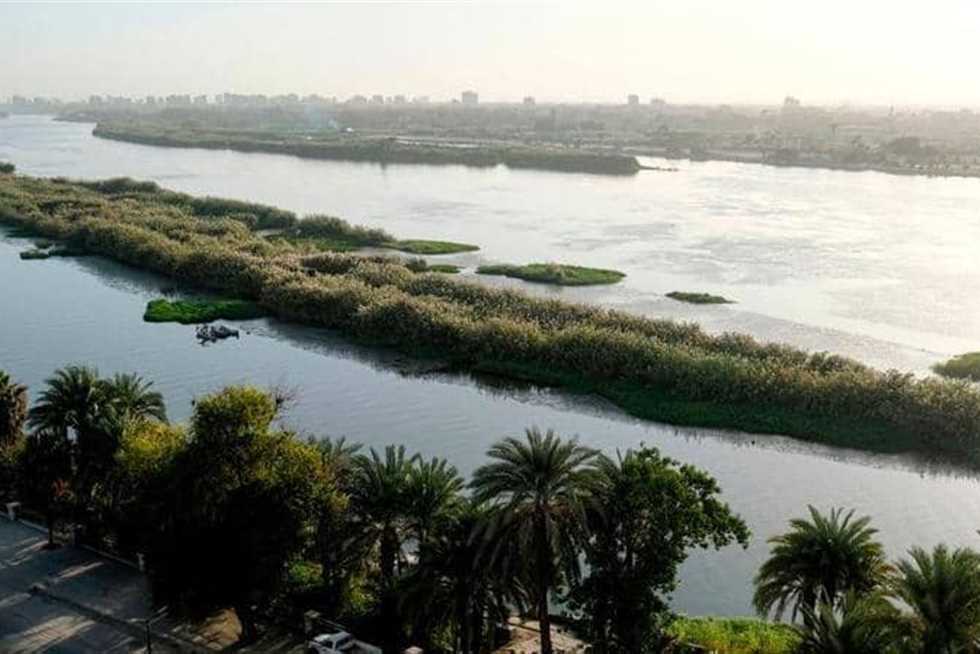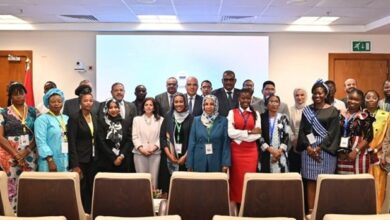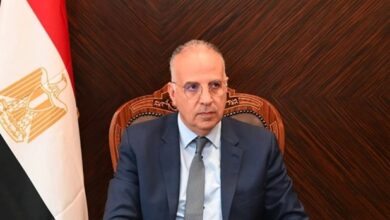
Egypt suffers from water scarcity and is close to a state of absolute scarcity, with a water deficit of about 21 billion cubic meters per year, and a food gap of more than US$10 billion, Minister of Water Resources and Irrigation, Hani Sweilam, said in his speech during the second day of the Cairo Water Week.
Egypt imports 60 percent of its food, and farmland covers only about 3.5 percent of its area, he said, adding Egypt depends on the Nile River for 97 percent of its water needs.
Sweilam launched on Tuesday the “Cairo Declaration on Accelerating Action towards the Achievement of Sustainable Development Goals” as a main entry for the UN climate conference for the mid-term review scheduled to be held in New York in March 2023.
Sweilam referred to the document’s five dimensions of action as follows:
1-Supporting areas with scarce water such as rural communities, and arid areas
2-Transboundary cooperation through capacity building programs and exchange of experiences
3-Strengthening the interdependence between water and climate through the initiative to adapt to climate change in the water sector
4-Expanding the smart finance mechanism by prioritizing international concessional finance, public and private investments in the water sector and in water-related infrastructure and services
5-Increasing innovation for sustainable water management to achieve more resilient water management in conjunction with climate change
The impact of climate change in Egypt has various forms including sea level rise, weather temperature rise, and unexpected changes in at in the sources of the Nile, he said.
Sweilam stressed the importance of strengthening cooperation between different countries of the world, especially developing countries to face water challenges at the global level, in addition to seeking to provide the necessary funds for water projects in a way that contributes to achieving UN sustainable development goals, especially the sixth goal.
Egypt organized the Fifth Cairo Water Week under the title “Water at the Heart of Climate Action,” as well as the upcoming UNCOP27 climate conference, to highlight water and climate issues at the global level, and to invite partners to support the international initiative to adapt the water sector to climate changes, which Egypt will launch during the conference, Sweilam added.
Sweilam continued: “Water challenges prompted the ministry to develop the National Water Resources Plan 2037, which aims to rationalize water use, develop additional water resources, improve water quality, and create the appropriate environment for rational water management, under whose umbrella many projects such as water channels rehabilitation projects are implemented in order to increase the efficiency of water distribution and delivering water to beneficiaries, improving agricultural drainage systems, applying appropriate modern irrigation systems, and implementing major water reuse projects.”
The National Water Resources Plan 2037, relies on the use of modern technology in water management, such as the use of telemetric monitoring systems, flood forecasting systems, and the use of satellite images in calculating water used by different crops, monitoring violations, developing a plan for managing coastal areas in the Red Sea, preparing atlases of torrential rains in different governorates, among others, Sweilam said.
Sweilam also reviewed the many areas of bilateral cooperation between Egypt and several Nile Basin countries, which contribute to achieving sustainable development and raising the standard of living of citizens in these countries.




